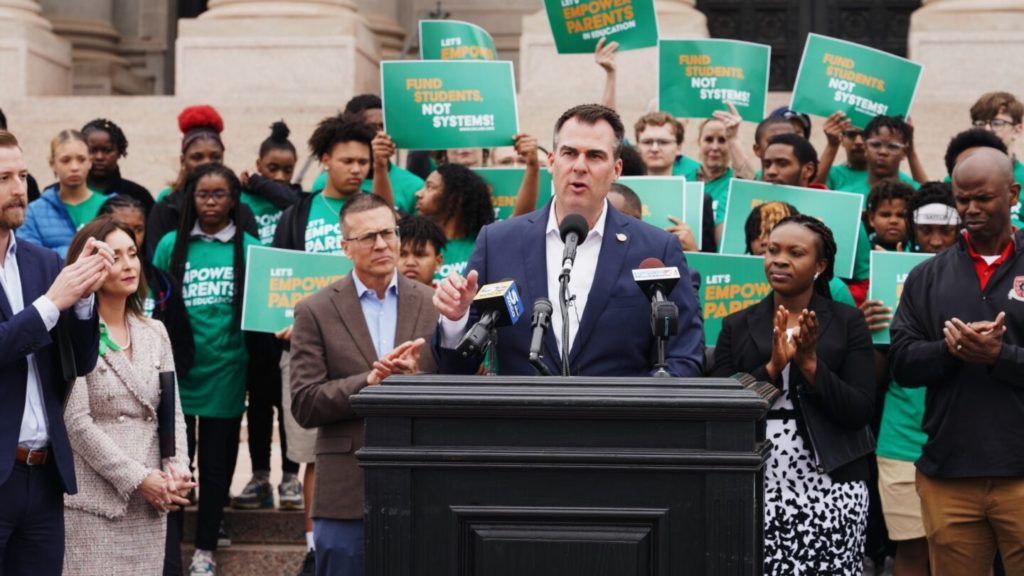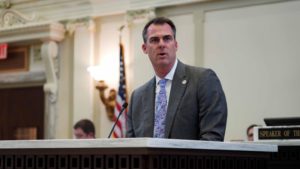Oklahoma Gov. Stitt says he wants to ‘unlock more private schools’ for religious families
(Daily Caller) – Republican Governor Kevin Stitt of Oklahoma told the Daily Caller News Foundation Monday that he wants parents to have the option to send their children to religious schools as…

(Daily Caller) – Republican Governor Kevin Stitt of Oklahoma told the Daily Caller News Foundation Monday that he wants parents to have the option to send their children to religious schools as well as public schools.
Education has been an important part of Stitt’s tenure as governor, and he explained that he believes the more options a parent has for their child, the better off the education system will be. Religious schools, according to Stitt, are no different, saying that part of his agenda is to “unlock more private schools” in the state.
Stitt told the DCNF that school choice should be for more than just the wealthy families in the state and that any student, regardless of their financial or religious affiliation, should be able to attend a school where they will thrive.
“I don’t think we should discriminate based on your faith and I think that those dollars should flow wherever a parent, a school district, a charter wants to set up,” Stitt said. “I think the Supreme Court has been very specific on that.”
Stitt was referring to the Supreme Court’s recent decision in Carson v. Makin, in which the court determined that religious schools should be able to participate in the state’s tuition assistance program. In the majority opinion, Chief Justice John Roberts wrote that Maine’s requirement that religious schools must be “nonsectarian” before being approved for the program was a violation of the Free Exercise Clause, which protects the rights of religious Americans to practice their faith.
Despite this, Oklahoma’s Statewide Virtual Charter School Board recently voted down an application that would have created the first religious charter school in the nation. The board members expressed concerns about potential lawsuits being levied at them if they approved the application, and Stitt said that he found it “very concerning” that the state’s Attorney General Gentner Drummond had indicated that his office may not defend the board if they ruled in favor of the application.
“What was disappointing is you have the Attorney General that gave, right before the board meeting, a letter basically telling the board members, who are volunteers by the way, that they could potentially not be protected from personal lawsuits if they voted contrary to the Attorney General which is really disappointing and concerning,” Stitt told the DCNF. “I’ve got two thousand volunteers serving on different boards and commissions around the state, if their votes are somehow not protected as their duties to perform for the board and they are just doing their best as Oklahomans, then we’ve got other issues.”
The religious charter application is set to be reviewed in the upcoming weeks after the applicants have had a chance to amend their request, and according to Stitt, he is still hopeful that Oklahoma will rise to the occasion by offering religious parents and families more options for their children.
Drummond’s Communications Director Phil Bacharach told the DCNF that the letter to the board was “legal advice given in response to a specific question.”
“The advice noted that board members take an oath to uphold the constitution, and they have a duty to act in accordance with state law. If they uphold the constitution, this office can and will defend such board members,” Bacharach said. “If a board member violates the constitution, they will not be entitled to protections from this office. The attorney general has a statutory and moral obligation to uphold the constitution, and he will not compromise that obligation.”



